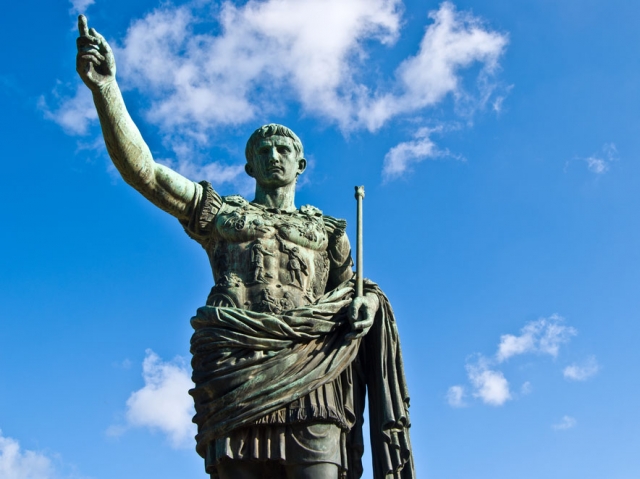'Veni, Vidi, Vici!'
Historian article

A personal reflection on Julius Caesar and the conquest of Britain
Julius Caesar always brings to mind the famous dictum of Winston Churchill, ‘History will be kind to me, for I shall write it!' In his writings Julius Caesar provides a vivid and detailed account of his invasions of Britain in 55BC and 54BC which have passed into history as unvarnished truth, partly because we have few, if any, other written sources from the time. But just how accurate are they, and, despite Caesar's assertions, how successful were his two invasions of Britain?
History texts often paint Britain at the time of Caesar as a blank canvas, off the edge of the world, but this is not really true. The Ancient Greeks knew of Britain as the ‘Tin Islands.' Herodotus, the Greek ‘father of history' wrote of trading with Britain in the fifth century BC. Pytheas, a Greek geographer, although his original text is lost, writing around 330BC describes a visit to, and exploration around, the coast of Britain from his home town of Marseilles. Diodorus Siculus, a Phoenician living in Sicily, writes about trading with Britain around 60BC. Iron Age hoards, like the one at Hallaton in Leicestershire, often contain coins from the Mediterranean world and beyond - all clear evidence that Britain was to a greater or lesser extent, integrated into the world of trade and commerce.
Hengistbury Head, for example, in Dorset developed into a main trading port with both France and Spain. Archaeological finds of amphorae used to transport wines from Northern Italy show links with the Roman world that pre-date Caesar. Iron, silver and bronze were exported and there is evidence that figs, glass, tools, as well as wine were imported. Coins found on the site show trading links with Brittany as well as Italy. Most of the evidence dates from before 50BC, with virtually no evidence after that date, suggesting the port was important before Caesar's invasions of Britain. And Caesar himself states that one of the reasons for his expeditions to Britain is to punish the Celts for supporting the Gauls in their rebellion against him. So Britain was not unknown either to the Romans or to Caesar himself. He was fully aware of the wealth of the island and the goods that were already traded from Britain to the Roman Empire. Julius Caesar wrote...
This resource is FREE for Historian HA Members.
Non HA Members can get instant access for £2.49

